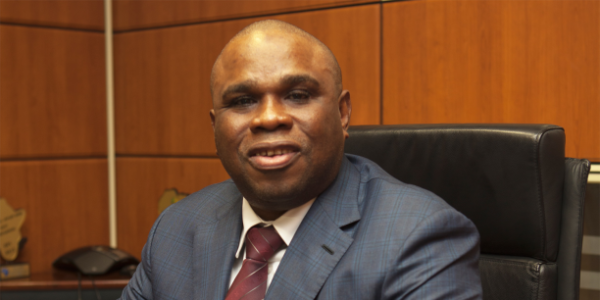Prof. Benedict Oramah, President of the African Export-Import Bank (Afreximbank), yesterday in Niamey, addressed the 12th Extraordinary Summit of African Union (AU) Heads of State, announcing a series of initiatives to support the implementation of the Agreement for the African Continental Free Trade Area (AfCFTA).
Prof. Oramah told the heads of state, who were gathered to mark the start of the operational phase of the AfCFTA, that Afreximbank was instituting a $1-billion AfCFTA Adjustment Facility to enable countries adjust in an orderly manner to sudden significant tariff revenue losses as a result of the implementation of the agreement.
“This facility will help countries to accelerate the ratification of the AfCFTA,” he said, telling the heads of state that, by starting the operational phase of the AfCFTA, “you have started a movement.”
“You must not look back,” continued the President. “This movement is now unstoppable.”
He added that, as part of its support for the implementation of the AfCFTA, the Bank had provided support to aid the work being done by the African Regional Standards Organisation and the AU in implementing the Agreement.
Professor Oramah also informed the Summit of the launch the Pan-African Payment and Settlement System (PAPSS), the first continent-wide payment digital system focused on facilitating payments for goods and services in intra-African trade in African currencies.
“Today we will launch the Africa-wide digital payment infrastructure – the Pan-African Payment and Settlement System (PAPSS) – that we developed in collaboration with the African Union,” he said. “It is a platform that will domesticate, intra-regional payments, save the continent more than $5 billion in payment transaction costs per annum, formalise a significant proportion of the estimated $50 billion of informal intra-African trade, and above all, contribute in boosting intra-African trade.”
Prof. Oramah stated that, by making it possible for Africans to pay for intra-regional trade in their local currencies, “the digital platform will deal a fatal blow to the underdevelopment of Africa caused by defragmentation of its economies. Our goal is to reduce, significantly, the foreign currency content of intra-African trade payments.”
Noting that “No people have achieved meaningful development when their economic progress depends on others,” he argued that, in the “renewed focus on industrial and value-chain development across the continent in trying to boost trade and investment, it is imperative that we address the economic costs of effecting so many payments in scarce foreign exchange.”
“Making cross-border payments easier, cheaper and safer is an obvious critical step in creating an Africa we want,” he concluded.



